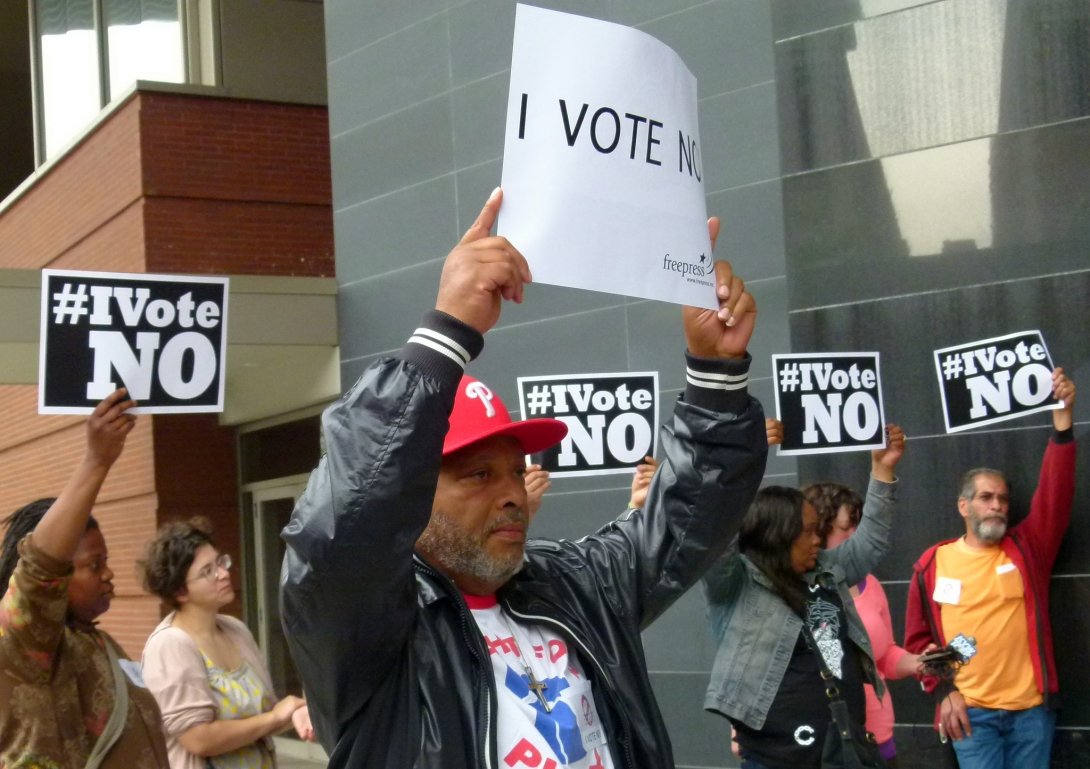Comcast Folds

Joe Piette
Overwhelming opposition to Comcast’s takeover of Time Warner Cable has officially killed the deal.
Just hours ago both cable companies released statements backing away from the merger — effectively admitting what the rest of the country has always known: A bigger Comcast is a bad idea.
Public outcry against the deal
From the day the merger was proposed 14 months ago, people have pushed Washington to stand up for internet users and cable customers who have grown tired of the lack of competition and spiraling costs for inferior services.
Free Press members spoke out from the start and sent the FCC thousands of messages, including these:
“Allowing Comcast to buy Time Warner Cable will be another nail in the coffin of our democracy.” —Ruth, Black Mountain, North Carolina
“Comcast is one of the most consumer-hostile corporations on the planet.” —David, Oakton, Virginia
More than a million people spoke out against the deal, and many in Washington listened.
Impact of public opposition
As was true in the Net Neutrality debate, the people-powered movement for internet freedom has become a force to be reckoned with. The Justice Department and the FCC, which were charged with reviewing the deal, should be commended for listening to the people, reviewing the facts and standing up against Comcast’s multimillion-dollar lobbying machine.
In a statement, Attorney General Eric Holder said the decision was “the best outcome for American consumers,” and FCC Chairman Tom Wheeler said it was “in the best interests of consumers.”
They joined a chorus of merger opponents in Congress, including Rep. Tony Cárdenas and Sens. Al Franken and Elizabeth Warren, who called on regulators to scrap the deal.
Politico reports, “Comcast spent more than $21 million in lobbying over the life of the deal, donated to practically every lawmaker who oversees it, blanketed the airwaves with euphoric pro-merger advertisements and sought supportive statements from local officials and groups — and still, the company couldn’t convince Washington that its ambitious plans would truly benefit consumers.”
Stop the merger mania
This failed attempt to monopolize internet access should put Comcast, AT&T, Verizon and other industry giants on notice. Rather than spending millions to eliminate their competition, these companies should build better networks and improve their services.
People around the country want and need open, fast and affordable broadband access — and companies should stop merging and start competing.
Ultimately Washington sent Comcast home to Philadelphia, where advocates continue to push the company to pay its fair share and support the city that gives it so much.
Next week the city hosts six public meetings to hear from residents about Comcast’s service in its hometown, and initial reports show abysmal results.
The Comcast story is far from over. But today’s win is a positive sign that people will be playing a larger role.